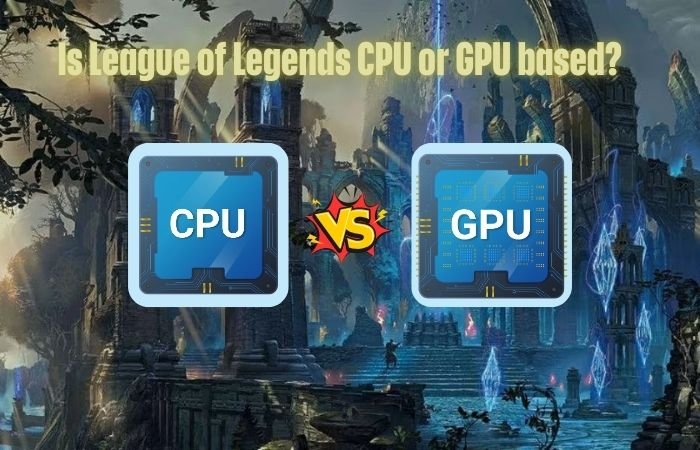While talking whether Is League of Legends CPU or GPU based?, the answer might shock you. Even with its stunning visuals, League of Legends tends to be more CPU dependent than GPU dependent.
This game is designed to be accessible to players across various hardware, optimized to run smoothly on all types of devices. The CPU handles most of managing tasks like game logic, AI calculations, and networking. Interestingly, the GPU plays a crucial role in delivering graphics and effects, ensuring the gameplay offers the best performance.
In short, while a GPU is generally essential, But it’s your CPU that truly matters for running League of Legends efficiently and smoothly.
In my personal experience, upgrading to a faster CPU significantly reduced in-game stuttering and improved overall responsiveness, even with a modest GPU.
To enhance your League of Legends experience, it’s essential to focus on a strong CPU while ensuring your GPU meets the game’s graphical demands.
Understanding League of Legends CPU or GPU Based?
Understanding the hardware demands of League of Legends is vital for optimal performance.
CPU’s Role in League of Legends
The CPU manages critical tasks such as:
- Game Logic Processing: Handling in-game events and mechanics.
- AI Computations: Managing behaviors of non-player characters.
- Physics Simulations: Calculating movements and interactions within the game world.
A robust CPU ensures these processes run seamlessly, directly impacting gameplay fluidity.
GPU’s Role in League of Legends
The GPU is responsible for rendering graphics, including:
- Visual Effects: Displaying textures, animations, and particle effects.
- Resolution and Frame Rate: Supporting higher resolutions and stable frame rates.
While League of Legends isn’t heavily GPU-intensive, a decent GPU contributes to better visual quality and a more immersive experience.
Balancing CPU and GPU for Optimal Performance
For the best gaming experience:
- Prioritize a Strong CPU: Invest in a processor with high single-core performance.
- Adequate GPU: Ensure your graphics card can handle the game’s visual requirements without bottlenecking the CPU.
This balance minimizes latency and maximizes frame rates, enhancing overall gameplay.
**For gamers seeking portability, exploring laptops optimized for League of Legends can provide a balanced performance on the go.
Finally
League of Legends relies more on CPU performance for smooth gameplay, with the GPU enhancing visual aspects. Focusing on a strong CPU while maintaining a capable GPU ensures an optimal gaming experience.
FAQs
Q: Can a weak GPU affect League of Legends performance?
A: While the game is CPU-intensive, a very weak GPU can still cause lower frame rates and reduced visual quality.
Q: Is upgrading the CPU more beneficial than the GPU for League of Legends?
A: Yes, upgrading the CPU often yields better performance improvements in League of Legends compared to upgrading the GPU.
Q: What CPU specifications are recommended for League of Legends?
A: A modern multi-core processor with high single-thread performance, such as the Intel Core i5 or AMD Ryzen 5 series, is recommended.

